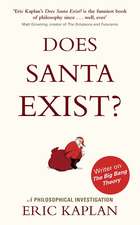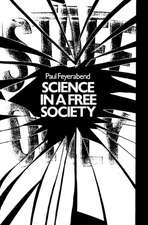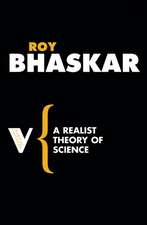Formal Thought and the Sciences of Man: Boston Studies in the Philosophy and History of Science, cartea 75
Autor G.G. Granger Traducere de Alexander Rosenbergen Limba Engleză Hardback – 30 iun 1983
| Toate formatele și edițiile | Preț | Express |
|---|---|---|
| Paperback (1) | 941.50 lei 6-8 săpt. | |
| SPRINGER NETHERLANDS – 2 noi 2011 | 941.50 lei 6-8 săpt. | |
| Hardback (1) | 947.50 lei 6-8 săpt. | |
| SPRINGER NETHERLANDS – 30 iun 1983 | 947.50 lei 6-8 săpt. |
Din seria Boston Studies in the Philosophy and History of Science
- 18%
 Preț: 944.19 lei
Preț: 944.19 lei - 15%
 Preț: 646.75 lei
Preț: 646.75 lei - 15%
 Preț: 646.75 lei
Preț: 646.75 lei - 15%
 Preț: 699.28 lei
Preț: 699.28 lei - 18%
 Preț: 736.50 lei
Preț: 736.50 lei - 18%
 Preț: 706.87 lei
Preț: 706.87 lei - 15%
 Preț: 643.16 lei
Preț: 643.16 lei - 15%
 Preț: 650.69 lei
Preț: 650.69 lei - 15%
 Preț: 634.18 lei
Preț: 634.18 lei - 15%
 Preț: 642.68 lei
Preț: 642.68 lei -
 Preț: 391.40 lei
Preț: 391.40 lei -
 Preț: 383.33 lei
Preț: 383.33 lei - 18%
 Preț: 944.19 lei
Preț: 944.19 lei - 18%
 Preț: 955.56 lei
Preț: 955.56 lei - 15%
 Preț: 643.65 lei
Preț: 643.65 lei -
 Preț: 392.75 lei
Preț: 392.75 lei - 18%
 Preț: 1229.10 lei
Preț: 1229.10 lei - 18%
 Preț: 1238.23 lei
Preț: 1238.23 lei - 18%
 Preț: 951.29 lei
Preț: 951.29 lei - 18%
 Preț: 1223.25 lei
Preț: 1223.25 lei - 18%
 Preț: 1225.79 lei
Preț: 1225.79 lei - 18%
 Preț: 1226.42 lei
Preț: 1226.42 lei - 18%
 Preț: 1236.82 lei
Preț: 1236.82 lei - 15%
 Preț: 644.49 lei
Preț: 644.49 lei - 18%
 Preț: 1231.78 lei
Preț: 1231.78 lei - 15%
 Preț: 644.30 lei
Preț: 644.30 lei - 18%
 Preț: 957.62 lei
Preț: 957.62 lei - 18%
 Preț: 1222.49 lei
Preț: 1222.49 lei - 18%
 Preț: 947.50 lei
Preț: 947.50 lei - 18%
 Preț: 1833.95 lei
Preț: 1833.95 lei - 18%
 Preț: 1227.99 lei
Preț: 1227.99 lei - 18%
 Preț: 947.35 lei
Preț: 947.35 lei
Preț: 947.50 lei
Preț vechi: 1155.48 lei
-18% Nou
Puncte Express: 1421
Preț estimativ în valută:
181.32€ • 188.23$ • 151.20£
181.32€ • 188.23$ • 151.20£
Carte tipărită la comandă
Livrare economică 22 martie-05 aprilie
Preluare comenzi: 021 569.72.76
Specificații
ISBN-13: 9789027715241
ISBN-10: 9027715246
Pagini: 244
Ilustrații: XXVIII, 210 p.
Dimensiuni: 155 x 235 x 19 mm
Greutate: 0.5 kg
Ediția:1983
Editura: SPRINGER NETHERLANDS
Colecția Springer
Seria Boston Studies in the Philosophy and History of Science
Locul publicării:Dordrecht, Netherlands
ISBN-10: 9027715246
Pagini: 244
Ilustrații: XXVIII, 210 p.
Dimensiuni: 155 x 235 x 19 mm
Greutate: 0.5 kg
Ediția:1983
Editura: SPRINGER NETHERLANDS
Colecția Springer
Seria Boston Studies in the Philosophy and History of Science
Locul publicării:Dordrecht, Netherlands
Public țintă
ResearchCuprins
I. The Problem of Forms and the Philosophy of the Sciences.- The Possibility of Science and the Fact of Science.- Perception and Science.- Linguistic Expression and Scientific Forms.- Coordination and Subordination of Forms.- A ‘Ptolemaic’ Revolution.- II. Language as a Vehicle of Information.- Rhetoric and Contents.- Epistemology, Genetic Psychology and Axiomatization.- Critique of the Notion of ‘Grouping’ as a Form of Logical Thought.- Ordinary Language and Formalized Language.- Pure Informational Language.- Semantics and Syntax.- III. Scientific Languages and Formalisms.- The ‘Mixed’ Language of Science.- The Formation of the Language of Chemistry.- Reversal of the Relations between Oral Language and Writing.- Multi-Dimensionality and Spatiality of Signs.- Semantic Polyvalence.- IV. The Découpage of Phenomena.- The Myth and the Concept.- Experienced Meanings and Scientific Objects.- Organized Practice, the Cultural Environment of the Concept.- An Example of Structural Objectivation: the ‘Wager’.- Two Apparently Opposed Movements: ‘Formalist’ Découpage and ‘Operational’ Découpage.- The Saussurian Reduction.- The Phonological Découpage.- Hierarchy of Phonological Structures.- Dynamics of Linguistic Structures.- ‘Language Engineering’.- The Theory of Queues.- Theories of Learning [apprentissage] as Dynamic Games.- V. Quality and Quantity.- Quality of the Object and Quality of the lived Experience [vécu].- Difference and Similarity.- Qualitative Responses and Information.- Probability of Response, and Division into Latent Classes.- Scaling Structure.- Search for a Metric.- The Interpretation of ‘Principal Components.’ Return to Structural Organization.- The General Theme of Linear Structures.- Disorder and Order.- Qassifications.-Linear Structures, Vectorial Spaces.- The Random Schemata.- Conclusion: Dialectic of Quality and Axiomatization.- VI. Structuring and Axiomatizing.- ‘Energetic’ Models and ‘Cybernetic’ Models.- Causality in the Models.- Meanings and Functions of Axiomatization in Mathematics.- Axiomatization in the Natural Sciences.- Axiomatization in the Sciences of Man.- The Evaluative Structure of Random Situations.- The Definition of a Norm of Decision.- Conclusions: Consciousness and Concept.- VII. The Understanding of the Individual.- The Clinical Situation and Structures in Psychoanalysis.- Diachronic and Synchronic: Personalities as Informational Systems.- Practice as Art and the Individual.- Individual and Alienation.- History as a Clinical Undertaking without Practice.- History and the Present.- Individual and Field.- Conclusions.- Postface to the English Edition (1982).- Notes.- Bibliography of Works Cited.- Index of Names.



















